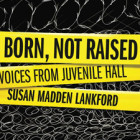
Facebook May Change Rules to Allow Children Under 13
|
For the first time, Facebook is considering allowing children under 13 to join the social networking site, according to a story in The Wall Street Journal. But a study last year by the Pew Internet & American Life Project found Facebook is already full of children younger than 13. According to the report, 46 percent of 12-year-olds are already using Facebook despite the prohibition, either with their parents’ permission or by lying about their age. The Wall Street Journal reports Facebook is researching policies and new technologies that will keep young children safe while using the page. Possibilities include giving parents control over their child’s account by linking the parent and child accounts together.










